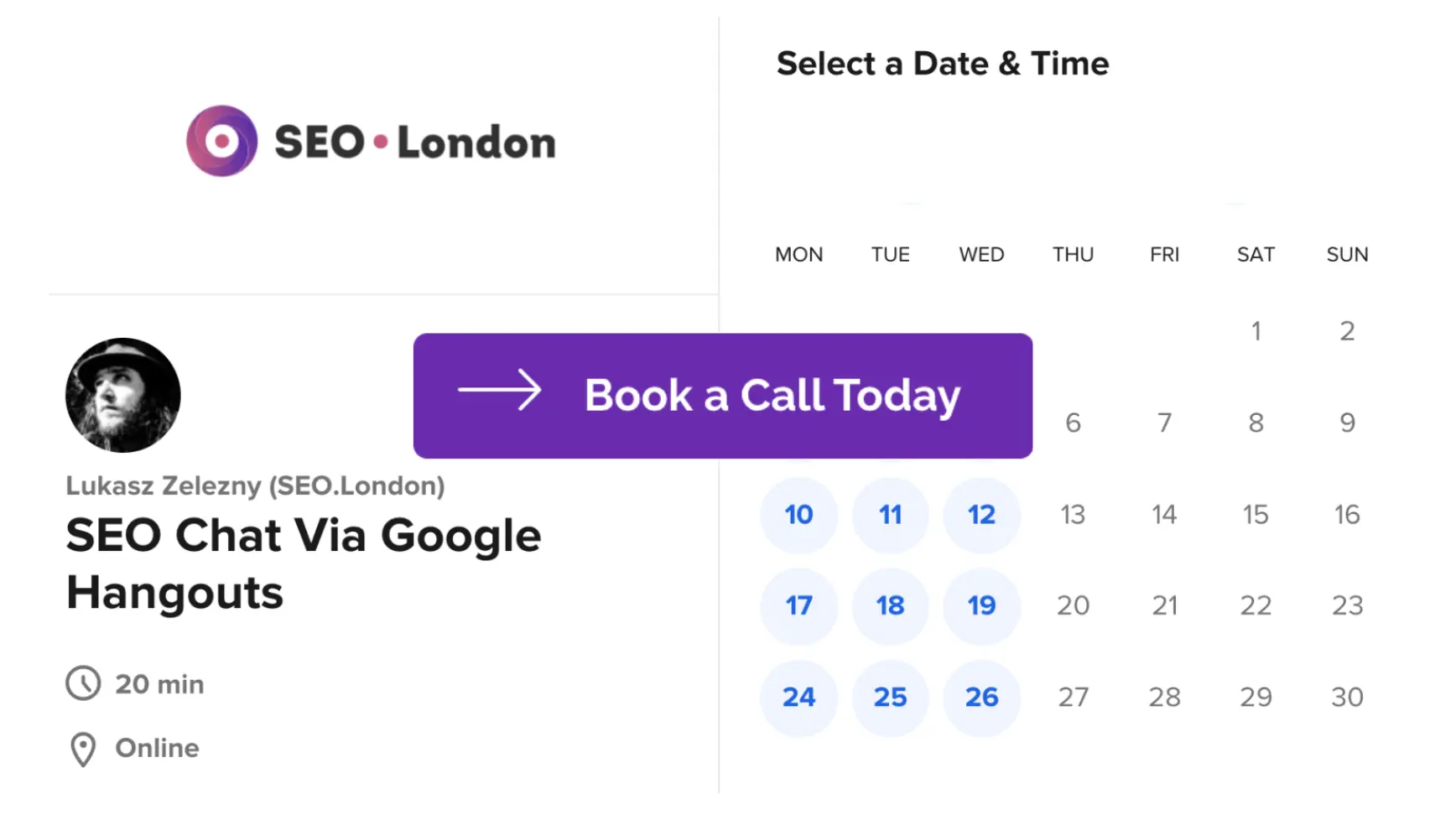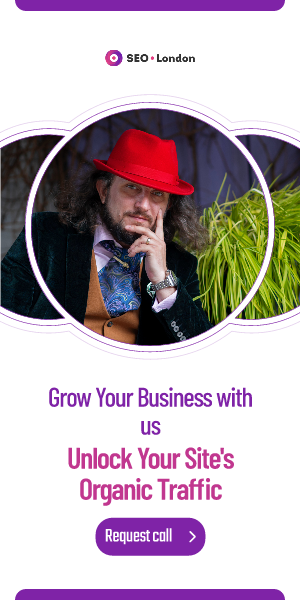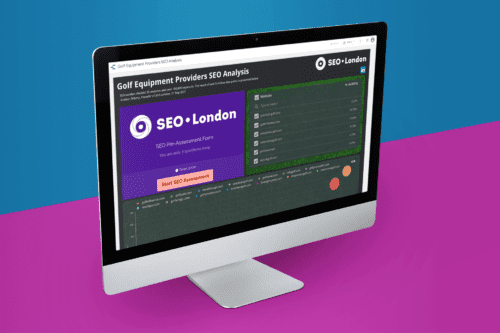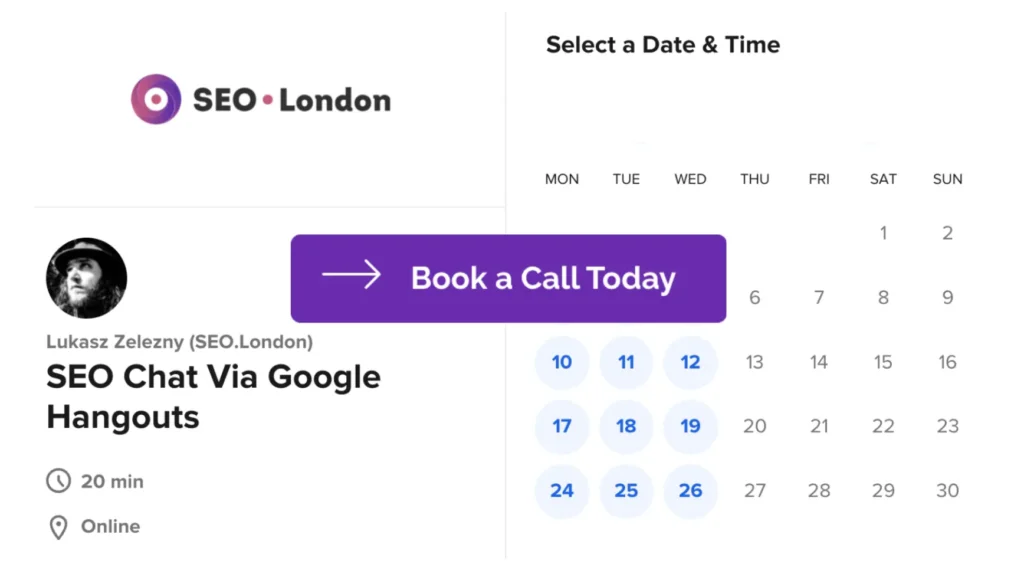Navigating the digital space can feel like exploring uncharted territory. Every business, big or small, seeks visibility in this vast landscape. More visibility translates into more engagement and ultimately, higher revenues. Isn’t that the promise of any thriving venture? But here lies a pressing question—how do we claim this visibility? The answer lies in effectual search engine promotion services.
Introduction to Search Engine Promotion Services
What Are Search Engine Promotion Services?
A wave is rising; an inherent need to be seen on the World Wide Web. Amidst the cacophony of websites clamoring for attention, how does one stand out? That’s where search engine promotion services come into play. In essence, these search engine marketing services encompass various strategies aimed at improving your website’s ranking on search engines like Google or Bing. It’s an intricate blend of SEO (search engine optimization), PPC (pay-per-click) advertising, social media marketing, content marketing—essentially all tools capable of amplifying your web presence.
Increase your online presence with Lukasz Zelezny, an SEO Consultant with over 20 years experience — schedule a meeting now.

The Importance of Search Engine Promotion in Digital Marketing
Moving forward with our discourse on digital search engine marketing solutions, let me emphasize how embarking upon an effective search engine promotion strategy contributes to achieving your overall digital marketing goals.
To place it into perspective:
- Higher Rankings: Prominently appearing on SERPs (Search Engine Results Pages) accelerates traffic flow towards your website.
- Enhanced Visibility: Greater online exposure drives brand awareness and recognition.
- Target Audience Reach: Tapping into relevant user queries means that you’re reaching an audience genuinely interested in what your business offers.
The aforementioned points serve to underline why prioritizing search engine promotion remains crucial within a comprehensive digital marketing plan.
How Search Engine Promotion Services Can Benefit Businesses
Now I hear you ask—what are the tangible benefits businesses stand to gain from investing in quality search engine promotion?
Let’s enumerate some key advantages:
- ROI: Traditional marketing channels can’t beat the impressive return on investment that search engine promotion offers.
- Audience Insight: You get valuable data about your audience which you can leverage further to refine your marketing strategies.
- 24/7 Promotion: Unlike physical stores, the internet never sleeps, which means your website becomes a 24/7 accessible storefront leading to more potential customers and sales.
The ultimate goal here is not just maximum visibility but high-quality leads funneling into business growth—a promise search engine promotion services ardently seek to fulfill.
Search engine optimization (SEO)
Let’s delve into the captivating world of SEO. This practice plays an integral role in effective search engine promotion services and influences your online visibility significantly.
Get More Customers Online with Lukasz Zelezny, an SEO Consultant with over 20 years experience — schedule a meeting now.

Understanding the basics of SEO
Firstly, understand that SEO stands for “Search Engine Optimization”. To break it down, it’s a meticulous process to improve your website by tweaking particular aspects so it becomes more appealing to search engines. The general goal is to elevate your site’s ranking on search results pages like Google or Bing. As you rise in rankings for search ads, the likelihood of potential customers stumbling upon your website increases — an objective every business strives for.
The role of keywords in SEO
Keywords play a huge part in this process – they are that bridge connecting a searcher’s query with relevant content on websites. Imagine them as hooks; they ‘hook’ onto specific search queries users enter, directly leading those potential customers to your doorstep. Implementing strategic placement and relevance of these keywords boosts the possibility of attaining higher rankings within search engine result pages.
What to ask an SEO Consultant
Now, let’s take a closer look at some crucial elements within an effective SEO strategy: On-page optimization techniques, off-page optimization techniques and technical SEO considerations.
On-page optimization techniques
On this kind of optimization, we focus solely on things you can do ON your actual website. It includes strategically placing keywords within title tags and meta descriptions to elevate relevancy for search engines. Additionally, maintaining high-quality original content not only appeals to visitors but also positions you as an authority figure within Google’s perception.
Off-page optimization techniques
In contrast to its sibling above, off-page techniques concentrate on activities performed outside the realms of your own website yet still contribute towards its reputation and ranking. For instance, backlinking (getting other reputable sites to link back to yours) certifies your credibility from the perspective of search engines – Think about them as virtual votes vouching for your trustworthiness!
Technical SEO considerations
Technical SEO may sound intimidating initially but understanding its essence would significantly assist in comprehending the mysterious mechanisms functioning behind search engine promotion services. It caters to the technicalities involved, like site architecture and mobile responsiveness, that elevate your website’s readability for search engines — an absolute necessity in today’s predominance of handheld devices. Well-implemented technical SEO enhances both user experience and search engine friendliness, leading to a win-win situation.
In short, these elements within SEO intertwine harmoniously permitting effective optimization strategies – fueling the success of your online presence.
Pay-per-click Advertising (PPC)
Paying for clicks or interactions with an advertisement is part of Pay-Per-Click advertising, more commonly known as PPC. This marketing method is typically managed through platforms like Google Adwords or Bing Ads, where advertisers pay a predetermined fee each time someone clicks on their sponsored content.
Overview of PPC Advertising
The purpose of pay-per-click advertising is to drive targeted traffic to your website by placing advertisements in search results or on third-party sites. These ads are usually just video ads placed near related content so they appear when users search certain keywords that relate to the promoted products or services.
Advertisers bid for ad placements in search engines’ sponsored posts and set their preferences on how much they would be willing to spend per click. It’s important to note that the highest bidder doesn’t always win; it’s also essential that the ad is deemed useful by potential users.
The Benefits of PPC Advertising
Pay-per-click advertising offers numerous advantages, making it a popular choice among marketers:
- Swift Results: Unlike SEO efforts which take time to yield results, campaigns utilizing search engine promotion services can rapidly generate website traffic.
- Budget Control: A key benefit here is control over your budget; you decide how much you’re willing to spend per click, and daily spending caps can be implemented.
- Targeted Traffic: PPC allows businesses to target specific audiences based on demographics, location, or even device type.
- Performance Analysis: Detailed reporting helps monitor campaign performance almost instantly.
- Brand Exposure: Even without actual clicks, your brand gains visibility because ads are displayed when relevant terms are searched.
Creating Effective PPC Campaigns
To create an effective pay-per-click campaign, one must execute strategic planning and continuous optimization – this involves researching appropriate keywords for targeting while setting realistic budgets for effective bidding.
Constant monitoring of these campaigns helps identify areas that need focus. Compelling ad creatives with clear call-to-action (CTAs) boost click-through rates. Highly optimized landing pages ensure a higher quality score, which eventually leads to better positioning and lower costs per click.
Best Practices for PPC Ad Copywriting
Your ad copy should not only attract clicks but also set correct expectations for what the user will find after the click. Here are some best practices:
- Craft compelling headlines: Your headline forms the first impression, make it count!
- Display benefits or unique selling points: Address your audience’s needs directly.
- Use power words: Words that evoke emotion can significantly increase click-through rates.
- Have a clear CTA : Guide users on their next step clearly.
Measuring and Analyzing PPC Campaign Performance
How well has your campaign performed? To measure this, use metrics like impressions, click-through rates, conversion rate, cost per acquisition, and return on advertising spend. Don’t just monitor these key performance indicators; take steps on improving them too!
Tools available in platforms such as Google Ads give you deep insights into how well your ad campaigns are performing against industry benchmarks that aid decision-making.
Remember that an impressive track record of effective in search advertising and engine promotion services involves rigorous monitoring and analysis of pay-per-click advertising efforts. This continual process helps optimize budget allocation across different variables leading to maximum possible returns from the campaign. Armed with accurate data interpretation skills, you can finely tune strategies for better results over time.
Local search optimization
Gone are the days when customers had to rummage through bulky directories to find local businesses. The onset of digitalization and search engine technology has tremendously enhanced the discovery of firms operating in proximate locations. This advancement underscores the importance of implementing local search optimization particularly for small enterprises keen on capturing adjacent markets.
The Importance Of Local Search For Small Businesses
Small businesses no doubt operate under restricted scopes, with most relying heavily on the neighboring clientele base. Therefore, optimizing your business’s visibility on local searches is vital as it can significantly accelerate customer acquisition rates.
According to a study conducted by Google, “near me” searches have more than doubled in recent years. This trend indicates that consumers are increasingly turning to online platforms to identify nearby shops, services, or products. Employing local search optimization techniques like creating location-specific landing pages or maximizing Google My Business listings could bridge the gap between your enterprise and potential customers scouring the internet for services akin your offering.
Aside from facilitating customer acquisition, investing in local search engine promotion services enhances trustworthiness amongst your site visitors and thereby amplifies conversion rates. Put simply; people feel much safer transacting with businesses they can physically locate.
Strategies For Optimizing Google My Business Listings
Optimizing your Google My Business (GMB) listing is pivotal while aiming at penetrating localized markets. Think of GMB as an elaborate digital calling card showcasing essential details about your operation including contacts, physical address, operating hours among others.
To optimally benefit from this tool:
- Fill out all sections thoroughly: A robust GMB profile improves visibility during relevant keyword searches.
- Update information regularly: Ensure that all company info shared remains accurate over time.
- Solicit reviews relentlessly: Positive reviews boost credibility and improve ranking during local SEO results.
- Utilize posts effectively: Regularly share updates, offers or news via posts to keep potential clients engaged.
- Insert keywords curatively: Besides project images, consider matching your company description to likely search queries.
Creating Location-Specific Landing Pages
Equally rewarding for local SEO is the creation of location-specific landing pages. These are pages designed uniquely with meta descriptions, landing page, titles, and content that correlates precisely to specific geographical locales you’re targeting.
Creating these tailored pages can seem like a daunting task for novice site owners. Here are some guiding pointers:
- Page Content: Be sure to write detailed and unique information about each targeted location being covered on separate pages.
- Local Keywords: Use relevant local keywords in your title tags, meta descriptions and throughout the page’s content.
- User Experience: Design these pages with clear navigation and attractive visuals while ensuring mobile-friendliness.
A dedicated focus on enhancing local search engine visibility through optimizing Google My Business listings or creating location-specific landing pages may be the competitive edge needed by small market players against big brand saturation. Remember, seizing such opportunities requires consistency, constant adaptation to algorithm changes as well as understanding the evolving dynamics of localized consumer behavior.
Social Media Marketing and Search Engine Promotion
In the digital marketing sphere, there’s a vital interplay between social media and search engine promotion mechanisms. As online visibility evolves, capitalizing on this synergy could potentially skyrocket your site’s rankings.
The Impact of Social Media Signals on Search Rankings
While social media signals do not directly impact search rankings – as confirmed by Google – their indirect influence is indisputable. Interestingly, high-quality content shared over social media will inevitably gain exposure. This prevalence prompts users to interact with the content – sharing, commenting or liking it – thereby multiplying its reach.
Beyond that, this surge in popularity encourages users to link your content within their blogs or sites, creating valuable backlinks that significantly boost SEO. A robust social media presence increases brand recognition too — consumers are more likely to click on well-known brands displayed in search results than unfamiliar ones. These user interactions enhance your click-through rate (CTR), further bolstering your search rankings.
Best Practices for Integrating Social Media and SEO
To fully harness the power of integrating social media into your SEO strategy while leveraging my expertise in search engine promotion services, consider these best practices:
- Foster Engagement: Post engaging content consistently which compels your audience to like, share or comment — higher engagement rates result in increased visibility.
- Use Keywords Strategically: Implement keywords relevant to your brand within posts; optimizing profile descriptions or posts maximizes visibility across platforms.
- Build High-Quality Backlinks: Craft valuable resources that others can’t resist linking to from their own sites.
Remember that consistency is critical when implementing these strategies – remain patient as they may take some time before showing noticeable effects.
Using Social Media Platforms to Drive Organic Traffic To Your Website
Besides being an ingenious tool for connection and entertainment, various social media platforms have tremendous potential when it comes down to organic traffic drive—Facebook, Twitter, LinkedIn or even Instagram; each platform will require a different approach.
For instance, Business-to-Business (B2B) marketers might find LinkedIn the perfect avenue to post industry-related articles and drive traffic back to their website, while visually appealing products can profit immensely from Instagram’s image-centric platform.
Ensure each social media profile contains your website’s link, paving an easy path for interested users towards more information. Regularly promoting blog posts or other valuable content of your site entices followers to visit your page, thereby increasing organic traffic. But remember — promotion shouldn’t be overly sales-oriented. Instead, focus on delivering true value to build trust among your audience.
By effectively merging social media strategies with search engine promotion protocols, you set the stage for enhanced online visibility and SEO; it’s a match made in digital marketing heaven! While this strategy requires thoughtful planning and sustained effort, the boost in web traffic and brand awareness makes all worthwhile.
Content Marketing and Search Engine Promotion
Content marketing plays a pivotal role in search engine promotion. It involves creating valuable, relevant, and consistent content to entice and engage your targeted audience. Moreover, if the created content is SEO-friendly, it can significantly improve your website’s visibility on various search engines.
Creating High-Quality, SEO-Friendly Content
When I talk about high-quality, SEO-friendly content, I am referring to material that not only appeals to your audience but also aligns with what search engines value and prioritize. It’s important to remember that putting out well-researched and original pieces will keep both your readers and search engine algorithms happy.
Here are a few strategies to consider:
- Keyword Research: Identify popular words or phrases relevant to your product or industry which potential customers might use when screen through their queries in various search engines.
- Long-Form Content: Lengthy articles (around 2k-3k words) generally perform better in the SERPs (Search Engine Results Pages). However, make sure the increase in quantity does not degrade quality.
- Regular Updates: Regularly updating your content keeps it fresh and more likely for revisitation by both humans and bots alike!
- User Intent: Aligning your content with the user’s intent can do wonders! Thus understanding what they want from you becomes paramount – Are they seeking information? Do they intend to make a purchase?
- Multimedia Elements: Adding images, infographics, or videos can enhance user engagement rates.
Best Practices for Optimizing Blog Posts and Articles for Search Engines
Optimizing blog posts requires skillful implementations of SEO techniques while ensuring the language remains human friendly – easy-to-read & enjoyable!
Ensure Keyword Insertion: Keywords should be naturally varied throughout an article without getting overly repetitive.
Craft Engaging Headers: Great headlines motivate users to click on links & stay longer.
Write Meta Descriptions This small snippet of info can make a user to click on your link from the search result page.
The SEO-Friendly URL: URLs should be short, clean and consist of target keywords when appropriate.
The Role of Content in Link Building Strategies
If you ask any industry expert, they’ll tell you that no aspect of SEO promises greater returns than establishing quality backlinks. Without intriguing content, however, getting these value-driven links would be nearly impossible!
To optimize for search engines and attract both readers and backlinks consider:
- Guest Posting: Collaborate with well-regarded blogs and publications within your niche or industry.
- Resourceful Content: Creating thorough guides about popular topics can naturally build links because people love referencing excellent resources.
- Infographics: They’re loved by many webmasters since they easily pass information visually – hence attracting more backlinks!
Quality content amps up search engine promotion services enormously by virtue of great visibility it offers. Always remember – being found is just the first step; holding onto this attention is the key!
Mobile Optimization and Search Engine Promotion
As we continually immerse ourselves in the digital age, mobile optimization gains increasing relevance. It’s a critical element of search engine marketing campaigns and promotion services.
The Importance of Mobile-Friendly Websites for SEO
These days, users regard their mobile devices as extensions of themselves; they’re indispensable tools used to find resources, research topics or shop online — just to name a handful of examples. These activities regularly pull them into the wide cosmic net that is the search engine arena.
Recognizing this pattern, Google instituted its “mobile-first” indexing policy in July 2019. Essentially, it means that Google uses the mobile version of any site for indexing and ranking purposes primarily.
With over half of all web traffic now originating from smartphones and tablets, there’s a clear imperative for every business to have a mobile-friendly website — one that delivers an intuitive user experience on smaller screens. Your potential clients’ satisfaction relates directly to how they perceive your brand; therefore, you must prioritize delivering seamless interactions.
Moreover, optimizing your site for mobile engagement aligns with SEO best practices and facilitates higher organic rankings in SERPs (Search Engine Results Pages). Remember: better visibility equals more potential traffic and conversions!
Best Practices for Mobile Optimization
To ensure you are serving up an optimized website experience for mobile users:
- Prioritize Responsiveness: Implement a responsive design such that your site automatically scales its content to fit different screen sizes.
- Simulate Speediness: As with desktop sites, page load speeds significantly impact bounce rates on mobile sites as well.
- Emphasize Easy Navigation: Utilize vertically-long pages with links back to top – thumb scrolls without friction!
- Eliminate Excessive Text Entry: Add options like autofill or checkboxes wherever possible.
Incorporating these elements forms part of solid SEO strategy – further improving those coveted organic search rankings – demonstrating yet again the entwined potency of mobile optimization and paid search engine promotion services.
Mobile SEO Considerations
When thinking about SEO for your mobile site, you must mind numerous considerations:
- Pop-up Use: Google penalizes mobile sites with intrusive interstitials (pop-ups), which markedly impair user experience.
- Mobile Sitemap: Submitting a separate sitemap to Google Search Console can provide valuable data on how well it’s indexing your mobile site.
- Local SEO: Mobile searches often have local intent. Ensure NAP (Name, Address, Phone Number) consistency across all platforms—be it on-site or third-party listings like Google My Business.
Navigating the nuanced aspects might require expert guidance. Fortunately, several professional agencies offer specialized, search engine marketing and promotion services adjusted to diverse business needs.
In terms of securing your digital future in an increasingly mobilized world, investing resources into making and maintaining a sophisticated mobile presence is fundamental and promises to yield returns multiples over.
Measuring and Tracking Search Engine Promotion Efforts
Without constant measurement, it is impossible to understand if your paid search marketing and engine promotion services are performing effectively or not. To make informed decisions and adjustments to your strategy, several key metrics should be monitored.
Key Metrics to Track in Search Engine Promotion
There’s an expansive selection of data points you can track when analyzing the performance of search engine optimization efforts. However, let me highlight a few critical ones:
- Organic Traffic: The number of visitors arriving at your site from search engine results pages (SERPs) without paid advertisements. An increase in organic traffic usually indicates successful SEO.
- Keyword Rankings: This metric shows how well your website ranks for specific keywords in search engines such as Google or Bing. Higher rankings correlate with better visibility and more potential leads.
- Bounce Rate: It measures the percentage of viewers who leave your site after viewing only one page, which could suggest that the content isn’t engaging enough.
- Conversion Rate: This vital metric monitors the percentage of visitors who perform a desired action on your site, like purchasing a product or signing up for a newsletter.
Tools and Resources for Monitoring SEO Performance
Now that you know what crucial metrics to watch out for let us examine tools that can aid in tracking these indicators effectively.
To start with, Google Analytics is an indispensable tool when monitoring organic traffic, conversion rates or bounce rate among others.
Another resource worth mentioning is SEMRush. It’s an all-in-one toolkit that helps track keyword rankings while also monitoring competitors’ strategies.
Likewise, MozPro provides extensive insights into both on-page and off-page SEO factors including keyword ranking changes over time.
Analyzing and Interpreting SEO Data
Collecting substantial amounts of data does not solely cut it – properly interpreting this information is pivotal too! Understanding what exactly each metric means and how they correlate can significantly influence your strategy decisions.
For example, assume that you witness an increase in organic traffic but a decrease in conversion rate. It might suggest that while more people are viewing your site due to successful SEO efforts, the content or service provided isn’t compelling enough to convince them into becoming customers.
In contrast, if keyword rankings are improving but organic traffic doesn’t show significant growth, potential issues could include search relevance or ineffective meta descriptions deterring clicks.
With a detailed understanding of this data, it allows for targeted improvements. In these situations, revamping content to better resonate with viewers or enhancing metadata for increased click rates could be considered respectively.
Staying on top of measuring and tracking organic search results and engine promotion efforts ensures continual learning and optimisation for even better results. Both keeping tabs on crucial metrics and correctly interpreting them provide the insight needed to adjust strategies as necessary – ultimately driving success!
Choosing a Search Engine Promotion Service Provider
In our digitally-dominated world, visibility through online advertising hinged on search engine rankings is no longer a luxury. Rather, it has become an obligatory path for businesses across industry verticals to ensure success and growth. In this pivotal journey towards achieving their digital metrics, businesses often require professional assistance from reliable search engine promotion service providers.
Navigating through the ocean of SEO agencies could be a daunting task. With each boasting unique strategies, expertise levels, and pricings – which one do you trust for your business needs? Let’s delve into this vista to empower your decision-making process.
Factors to Consider When Selecting an SEO Agency
Whether it’s finding new customers or engaging with the existing ones more effectively, an efficient SEO agency can make all the difference. Here are some critical factors you might want to consider:
- Expertise and Experience: The competence of an SEO agency in delivering sustainable results is fortified by its wealth of relevant industry experience.
- Range of Services: Look out for those who offer comprehensive services that encompass Your desired realm of technical SEO elements, including website design and performance optimization.
- Transparent Reporting: Insist on regular reports providing clear insight into how your investment is turning out and whether or not set targets have been hit.
- Client Reviews & Case Studies: These credentials reflect an agency’s capabilities in real-world scenarios rather than merely claiming theoretical excellence.
By placing these factors at the heart of your decision-making process, optimal choice should be within reach.
Questions to Ask Potential SEO Service Providers
Before reaching any final decisions regarding which search engine promotion service you opt for, posing strategic questions shall generate a clearer picture:
- What particular strategy would they employ to boost my website’s organic presence?
- Can they provide detailed reports indicating what changes were made on my site regarding SEO optimization?
- How adaptable are they with updates heralded by search engines, especially Google?
- Are their services in harmony with my budget and expected ROI?
Answers to these questions should provide insights into an agency’s approach, transparency, versatility, and affordability.
Customer Testimonials and Case Studies
The utmost effective way of assessing the credibility of your shortlisted SEO agencies is looking into feedback from past clients. Such testimonials encapsulate firsthand experiences of businesses that have actually used the agency’s services.
Moreover, ask for case studies relevant to your line of business. Evaluate how they tackled SEO challenges and leveraged opportunities related to businesses similar to yours. Analyzing these will not only give you a fair idea about their experience but also reassurance about their ability to handle daunting situations effectively.
This careful selection process would aid in appointing an SEO agency manifesting integrity, efficiency, and adaptability that resonate with your business goals delicately.
Staying Updated with Search Engine Algorithm Changes
As you delve more deeply into search marketing and engine promotion services, it’s crucial to grasp the dynamic nature of this field. The constantly shifting landscape highlights the importance of staying up-to-date with search engine algorithm changes and modifying your strategies in order stay on top. Let’s embark on a journey to understand why keeping informed about search engine updates is so significant and how you can continuously adapt.
The Importance of Staying Informed About Search Engine Updates
Search engines are not static — they’re consistently updated and refined to give users the most relevant results, depending upon their queries. These frequent modifications can significantly influence your website’s ranking and visibility. By staying informed about these changes, you’re better equipped to tweak your SEO tactics accordingly and maintain or improve your website’s position in SERP (Search Engine Results Pages). So essentially, keeping abreast of these updates gives you an edge over competitors who neglect this aspect.
Being aware of these shifts also allows you to prevent any potential slip-ups that might damage your site’s online performance. Misreading or disregarding major algorithmic updates could lead to penalties that may adversely affect traffic flow, impacting leads and conversions negatively.
Strategies for Adapting To Algorithm Changes
Adapting effectively to these changes requires a blend of vigilance, adaptive strategy, flexibility, knowledge application, and sometimes swift action:
- Regularly audit your website: Make it a routine practice to check your site for improvements regularly after each update.
- Focus on content quality: Always prioritize quality over quantity when generating content for your website.
- Get familiar with technical SEO: Knowledge about technical aspects like mobile-first indexing or page speed optimization will prove beneficial during updates.
- Be patient: Remember that it may take time for some positive change strategies to reflect in results and don’t rush into drastic alterations without thorough consideration.
- Engage professional help: If unsure, it’s quite beneficial to engage professionals offering search engine promotion services to navigate these changes effectively.
Resources and Communities for Staying Updated
To stay at the forefront of algorithmic updates, avail yourself of some valuable resources. Here are a few suggestions:
- Search Engine Blogs: Google Webmaster Central Blog, MOZ blog, or the SEMRush Blog offer great insights into any changes in SERP algorithms.
- SEO News Sites: Websites like Search Engine Journal or Search Engine Land provide timely news about the latest happenings in the SEO world.
- Webmaster Forums: Platforms such as WebmasterWorld Forum offer discussions on various developments in search engines.
- Social Media Channels: LinkedIn and Twitter accounts of key industry experts often share their expertise and perspectives on recent algorithmic changes.
Joining a couple of online SEO communities can also provide immense help in this field. These vibrant communities host a myriad of enthusiasts who constantly share useful tips, answer questions and spread awareness about new advancements or adjustments.
Navigating your way through frequent algorithmic shifts using an adaptive strategy while being part of knowledgeable resources and community forums plays a critical role in ensuring that your website remains visible amongst its competitors. By keeping abreast of these changes as part of employing effective search engine promotion services, you’ll inevitably become more adaptable at tackling future modifications head-on.
Frequently asked questions about search engine promotion services
Enlightening yourself with the answers to the most common queries on search engine promotion services might be the key element you need in your digital marketing career. Let’s discuss some of these frequently asked questions:
What is the cost of search engine promotion services?
As we unwrap this topic, it’s important to note that pricing for search engine promotion services could greatly vary. They hinge on numerous factors such as the size of your website, the competitiveness within your industry, and the specific strategies implemented.
- Small businesses may find packages ranging from $300 to $1500 per month.
- High-end or enterprise-level SEO service prices could surpass $10,000 in a month.
Keep in mind though, these are ballpark figures and an estimated range. It’s advisable to leverage a provider who will offer tailormade solutions to suit your unique business needs rather than adopting a one-size-fits-all approach.
How long does it take to see results from search engine promotion efforts?
Contrary to popular belief, search engine optimization is not instantaneous; it takes time before noticeable improvements kick in. Typically, expected results could start materializing anywhere from 4-6 months after initiating your SEO efforts. However, remember that SEO results grow over time; hence what you experience after six months might be considerably less than what you’ll see two years down the line.
What might influence these timelines include:
- The quality of content created,
- Keyword competition,
- And how often new content is published on your site among other factors.
Can I do search engine promotion on my own or do I need professional help?
Ultimately you can undertake SEO activities on your own; several resources online provide DIY guidance on basics such as keyword research or creating an SEO-friendly webpage structure among others. However, manipulating more complex concepts like technical SEO and link building could require deeper knowledge and experience.
Working with professional SEO service providers offers various advantages:
- Vast experience and expertise,
- Access to premium SEO tools,
- Time-saving, allowing you to focus on core business functions.
In conclusion, while you may start with DIY SEO initiatives, consider incorporating professional search engine promotion services as your site grows for optimal outcomes. Be sure to choose a provider who blends well with your brand ethos and is geared towards fostering client success.
Conclusion
The Ongoing Importance of Search Engine Promotion in Digital Marketing
As the digital landscape continues to evolve, it’s essential to keep a close eye on the importance search engine promotion services bring to your online marketing strategy. These services are no longer just an optional add-on or a luxury for big-budget companies; they’ve become a vital necessity for businesses of all sizes.
Despite the fierce competition and changing algorithms, effectively using search engine marketing sem leveraging these services can still give your brand the edge it needs to stay ahead. Search engines play a dominant role in how we discover trustworthy information, assess options, make decisions and finally choose whether or not to engage with a business. This ongoing trend underscores why search engine promotion will continue retaining its significant role in digital marketing strategies well into the future.
The evolving nature of this field also signifies that what worked yesterday might not work tomorrow. Staying abreast with current trends and algorithm changes is crucial to ensuring the continued efficiency of your promotional efforts.
Taking Action and Implementing Effective Search Engine Promotion Strategies
Having established the continuous relevance of search engine promotion services in our digital lives, it’s paramount that you take tailored action towards implementing effective strategies. You could start by focusing on SEO – strike a balance between on-page, off-page and technical optimizations while being attentive to keyword selection and usage. Complement this effort with targeted PPC marketing campaigns, aimed at driving instant traffic conversions.
Never underestimate the power local search optimization holds for small businesses, nor should one forget about integrating social media platforms into their promotional approaches for better organic reach.
Incorporate mobile optimization as part of your overall promotional strategy recognizing populations are increasingly accessing internet services via mobile devices more than ever before.
Of course, all these processes require tracking performance through key metrics overlaid with comprehensive analysis. In order to maximize your benefits from search engine promotion services, links must be built with other relevant content complemented by an endeavor for high-quality content creation.
Finally, seeking professional assistance from a reliable search engine promotion service provider could well be the surest way to ensure that you are updated with algorithm changes and industry trends.
By placing search engine promotion in its rightful place within your marketing strategies, you can proactively step into an ever-changing digital landscape, with full readiness to seize new opportunities as they emerge. Remember, when done right, search engine promotion can serve as a powerful tool for growing your web visibility, driving traffic, and ultimately fostering business growth.
 Published in: October 2023
Published in: October 2023
Last Updated in 2023-11-03T11:02:40+00:00 by Lukasz Zelezny




